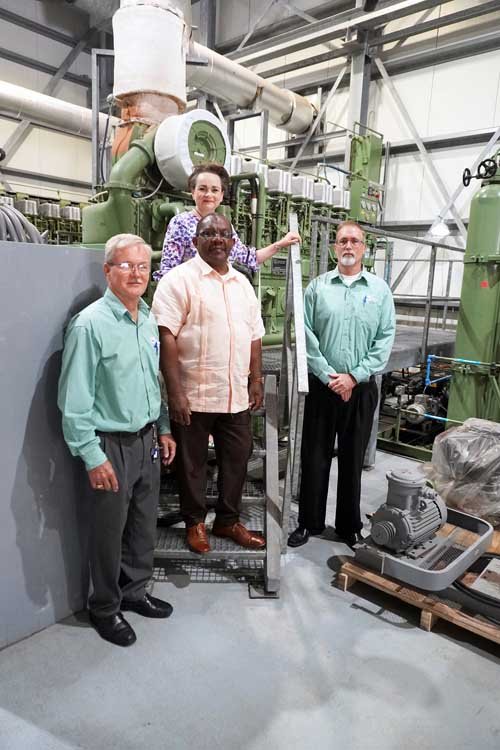With fuel prices and the cost of transport continuously increasing, the energy generated from the solar parks next to the Juancho Yrausquin Airport, along with the subsidies from the Dutch Government, have prevented an even steeper increase of the electricity bills on Saba.
The 2MWp solar parks of the Saba Electric Company (SEC) have not only contributed to a vast increase in sustainably generated energy but also had an impact on the electricity bills. On sunny days, Saba’s energy demand during the day is fully supplied by the solar parks.

Therefore, during daytime on sunny days, the diesel generators at the SEC power plant with a capacity of 4.3MWH don’t have to run, which saves a lot of fuel and on maintenance expenses because the generators are running for much fewer hours. During the late afternoon, once the 2.3MWH battery storage has been depleted, the generators turn on.
High fuel prices
Fossil fuels are not only bad for the environment, but the prices are also high and have been steeply increasing. Prices increased by 114.2 percent from June 2020 to February 2022. The price SEC pays for fuel is based on the market price per gallon plus a fixed amount that includes all logistics up to the point of consumption. The high and continuously increasing transport costs make it clear that investments in renewable energy are very valuable.
Subsidies
Without the solar parks that reduce the amount of fuel used and the subsidies provided by the Ministry of Economic Affairs and Climate (EZK) that fully subsidized the fixed rates in the past three years, the electricity bills would have been much higher. And, without an additional subsidy from the Public Entity Saba, the variable fee from July 2021 would increase by 29.498 percent instead of 9.68 percent.
The subsidies help to keep SEC’s objective to reduce the cost-based tariffs.
As part of the Saba Energy Strategy 2020-2025, SEC is striving for 100 percent sustainable energy in the future. There are plans to add 1 to 3MW in additional renewable energy, with a wind turbine project at the harbor and researching the possibility to expand private solar systems. Other plans include additional energy storage, grid intelligence and modernization for improved distribution reliability and energy efficiency and a conservation program.
EU grant
Saba will be receiving funding from the European Union to make investments in renewable energy. The European Commission recently approved 4.1 million euros for Saba in the form of grants.
Apart from the high fuel and transport costs, SEC faces a multitude of constraints. Saba is a micro-economy with a small customer base, the island has limited spatial area and limited availability of government-owned land for projects. Furthermore, SEC has to deal with a lack of capital, the high cost of imported equipment, spare parts, fuel and external expertise, and limited professional capacity.
GIS Saba

 Saba News News and Information from Saba Island, Dutch Caribbean
Saba News News and Information from Saba Island, Dutch Caribbean
